
Edson Arantes do Nascimento, better known by his nickname Pelé, was a Brazilian professional footballer who played as a forward. Widely regarded as one of the greatest players of all time, he was among the most successful and popular sports figures of the 20th century. In 1999, he was named Athlete of the Century by the International Olympic Committee and was included in the Time list of the 100 most important people of the 20th century. In 2000, Pelé was voted World Player of the Century by the International Federation of Football History & Statistics (IFFHS) and was one of the two joint winners of the FIFA Player of the Century. His 1,279 goals in 1,363 games, which includes friendlies, is recognised as a Guinness World Record.
Total Football is a tactical system in association football in which any outfield player can take over the role of any other player in a team. A player who moves out of his position is replaced by another from his team, thus retaining the team's intended organisational structure. In this fluid system, no outfield player is fixed in a predetermined role; anyone can successively play as an attacker, a midfielder and a defender. The only player who must stay in a specified position is the goalkeeper.
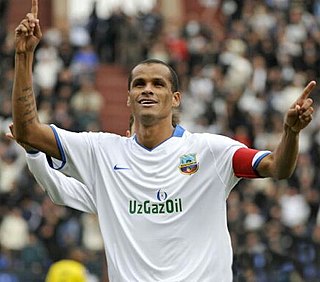
Rivaldo Vítor Borba Ferreira, known simply as Rivaldo, is a Brazilian former footballer who played mainly as an attacking midfielder but also as a second striker, and on occasion deployed as a wide midfielder or as a winger. Rivaldo is regarded as one of the greatest, most skillful, and most creative players of all time. He was renowned for his bending free kicks, bicycle kicks, feints, powerful ball striking from distance, and ability to both score and create goals. In 1999, he won the Ballon d'Or and was named FIFA World Player of the Year. In 2004, he was named by Pelé in the FIFA 100 list of the world's greatest living players. With success at club and international level, he is one of nine players to have won the FIFA World Cup, the UEFA Champions League and the Ballon d'Or.

Michael Laudrup is a Danish professional football coach and former player. Renowned for his composure, passing, vision, techncal skills, ball control, and dribbling ability, Laudrup is widely regarded as one of the greatest midfielders of all time. He is the older brother of fellow retired footballer Brian Laudrup.

In the sport of association football, a forward is an outfield position which primarily plays further up the pitch than midfielders and defenders. As with any attacking player, the role of the forward relies heavily on being able to create space for attack. Their advanced position and limited defensive responsibilities mean forwards normally score more goals on behalf of their team than other players.

Carlos Alberto "Capita" Torres, also known as "O Capitão do Tri", was a Brazilian football player and manager who played as an attacking right-sided full-back or wing-back. A technically gifted defender with good ball skills and defensive capabilities, he is widely regarded as one of the best defenders of all time. He also stood out for his leadership, and was an excellent penalty taker. Nicknamed O Capitão, he captained the Brazil national team to victory in the 1970 World Cup, scoring the fourth goal in the final, considered one of the greatest goals in the history of the tournament.

Romário de Souza Faria, known simply as Romário, is a Brazilian politician and professional footballer. A prolific striker renowned for his clinical finishing, he scored over 700 goals and is one of the few players to score at least 100 goals for three clubs. He is considered one of the greatest players of all time. Romário starred for Brazil in their 1994 FIFA World Cup triumph, receiving the Golden Ball as player of the tournament. He was named FIFA World Player of the Year the same year. He came fifth in the FIFA Player of the Century internet poll in 1999, was elected to the FIFA World Cup Dream Team in 2002, and was named in the FIFA 100 list of the world's greatest living players in 2004.

Johannes Jacobus Neeskens is a Dutch football manager and former player. A midfielder, he was an important member of the Netherlands national team that finished as runners-up in the 1974 and 1978 FIFA World Cups and is considered one of the greatest midfielders of all time. In 2004, he was named one of the 125 Greatest Living Footballers at a FIFA Awards Ceremony, while in 2017 he has been included in the FourFourTwo list of the 100 all-time greatest players, at the 64th position.
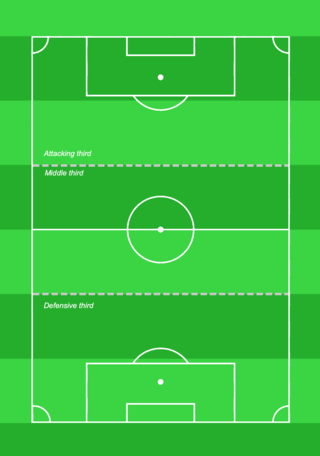
Team tactics as well as individual skills are integral for playing association football. In theory, association football is a very simple game, as illustrated by Kevin Keegan's namely assertion that his tactics for winning a match were to "score more goals than the opposition". Tactical prowess within the sport is nonetheless a craftsmanship of its own, and one of the reasons why managers are paid well on the elite level. Well-organised and ready teams are often seen beating teams with more skillful players on paper. Manuals and books generally cover not only individual skills but tactics as well.

Manuel Francisco dos Santos, nicknamed Mané Garrincha, best known as simply Garrincha, was a Brazilian professional footballer who played as a right winger. He is widely regarded as one of the greatest players of all time, and by many, one of the greatest dribblers ever.
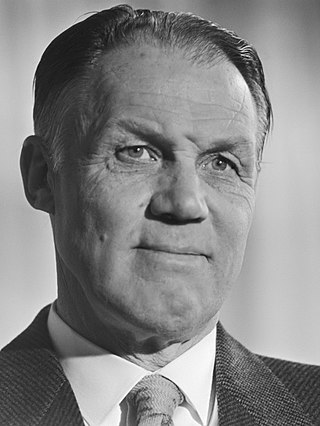
Marinus Jacobus Hendricus "Rinus" Michels was a Dutch football player and coach. He played his entire career for Ajax, which he later managed, and played for and later managed the Netherlands national team for four spells. Throughout his career, he played as a forward. He is regarded as one of the greatest managers of all time.
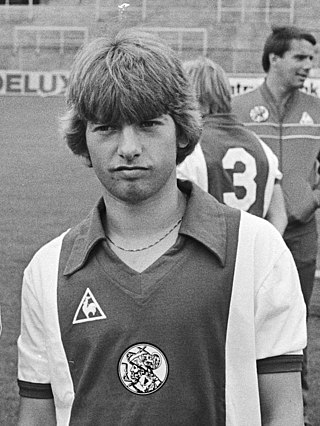
Jesper Olsen is a Danish former professional footballer who played as a left winger. He is best remembered for representing Ajax of the Netherlands and Manchester United of England. He was a regular player for the Danish national team, scoring five goals in 43 matches. He represented Denmark at the Euro 1984 and 1986 World Cup tournaments.
In sports, dribbling is maneuvering a ball by one player while moving in a given direction, avoiding defenders' attempts to intercept the ball. A successful dribble will bring the ball past defenders legally and create opportunities to score.
In association football, rugby league, rugby union and Australian rules football, a dummy or feint is a player deceiving the opposition into believing he is going to pass, shoot, move in a certain direction, or receive the ball and instead doing something different, thus gaining an advantage.
The Marseille turn, also known as the 360, the Spin, the Mooresy Roulette, the Roulette, the Girosflin, and the double drag-back, is a specialised dribbling skill unique to the game of Association football. With so many different names, the exact origin of this skill move is unknown. The Marseille turn was first popularized in Europe by French striker Yves Mariot in the 1970s. Diego Maradona and Zinedine Zidane were arguably the most notable exponents of the move, and thus it has also been known as the Maradona turn and the Zidane turn.

Jan Olof "Janne" Olsson is a Swedish former footballer who played mostly as a defender. He represented Halmstads BK and Åtvidabergs FF during a club career that spanned between 1961 and 1978. A full international between 1973 and 1974, he won 17 caps for the Sweden national team and represented his country at the 1974 FIFA World Cup.
The runaround move is a football move designed to get around an opponent, made famous by Pelé in the 1970 World Cup. The move involves letting a dribble or a pass from a teammate approach but allowing it run past the opponent, then sprinting around the opposing player to continue the attack.
The rainbow kick is a trick used in association football, in which a player steps to the side of the ball and flicks it up. The trajectory of the ball gives the trick its name. The trick is usually performed while running forward with the ball, and is done by rolling the ball up the back of one leg with the other foot, before flicking the standing foot upwards to propel the ball forward and over the head.
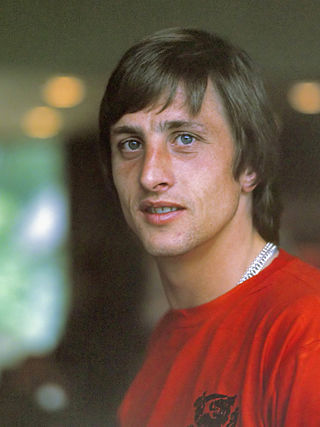
Hendrik Johannes Cruijff, commonly known as Johan Cruyff, was a Dutch professional football player and manager. Regarded as one of the greatest players in history and as the greatest Dutch footballer ever, he won the Ballon d'Or three times, in 1971, 1973, and 1974. Cruyff was a proponent of the football philosophy known as Total Football developed by Rinus Michels, which Cruyff also employed as a manager. Because of the far-reaching impact of his playing style and his coaching ideas, he is widely regarded as one of the most influential figures in modern football, and he is also regarded as one of the greatest managers of all time.

The flip flap is a dribbling move, or feint, in football used to trick a defensive player into thinking the offensive player, in possession of the ball, is going to move in a direction they do not intend to. Players perform it by using the outside of their dominant foot to push the ball towards their dominant side, then quickly move the dominant foot around the ball and using the inside to push the ball to their non-dominant side. Although the footwork is the most distinctive aspect of the flip-flap, its success as a feint also relies heavily on the attacking player having an explosive acceleration from a stationary position.















